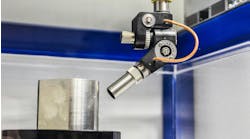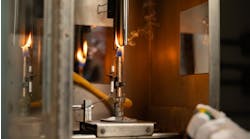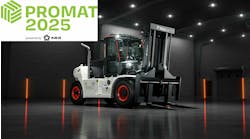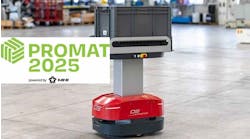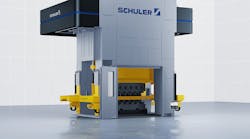SCHULER GROUP introduced a compact, servo-driven closed-die forging press with a transvers-shaft drive that operates more quietly due to reduced vibrations, as well as faster than a comparable machine with a longitudinal shaft drive. The press was developed together with automotive Hirschvogel Automotive Group, which has confirmed the performance after a year of operation.
According to Schuler, the design involves two counter-rotating, eccentric gears in the head of the press balance the mass forces which improve quietness and precision.
Also, widely spaced pressure points increase the available die area in the process flow direction. This creates space for another forming step, which also allows production of more complex forging parts.
The transverse-shaft drive also gives the press a higher tilting rigidity and lower deflection of the two crankshafts — and thus lower "spring-back" of the entire machine.
With four powerful servo motors, the speed at which the upper die approaches and moves away from the workpiece can be adapted precisely to the forming process. This allows full throttle during forming and slowing down when spraying and transporting the parts.
In order to keep the temperature low on the active die, the contact time may be as short as possible without sacrificing the cooling and transport time.
The new press’s ServoDirect technology allows individual adaptation to respective forming processes, which promotes optimal output.
A power-management system saves energy at each stroke, as it is only supplied when it is needed.
The table ejectors also have an independent servo motor and are no longer mechanically coupled to the main drive, as in previous presses. This increases the flexibility for the parts transport with a two-bar transfer, and accelerates the production process.
Learn more at www.schulergroup.com
